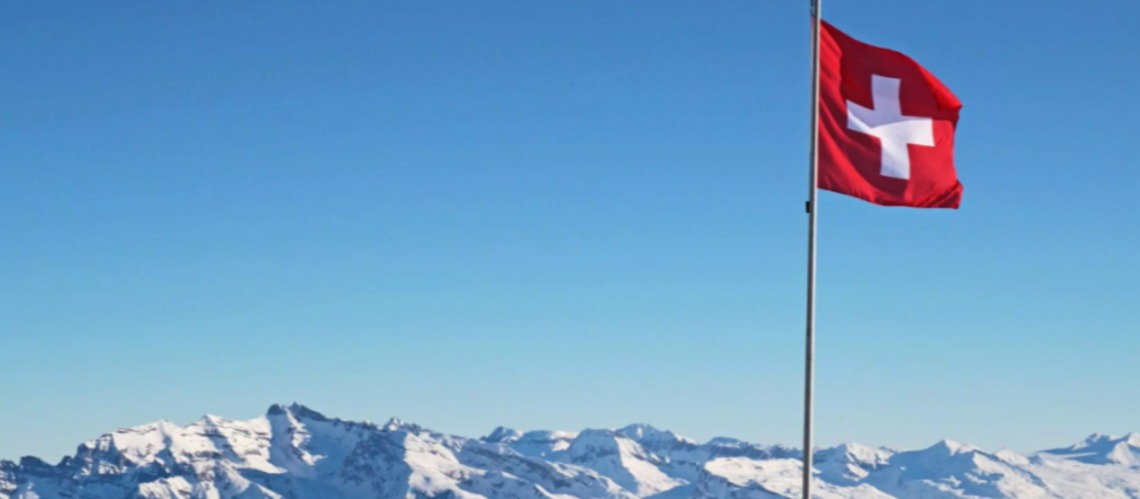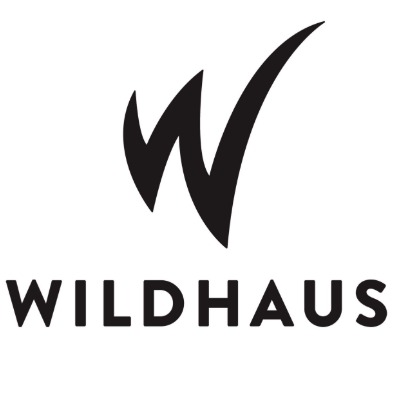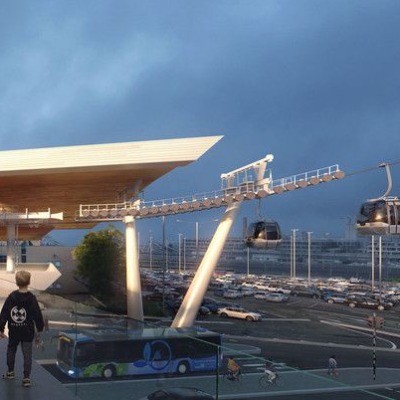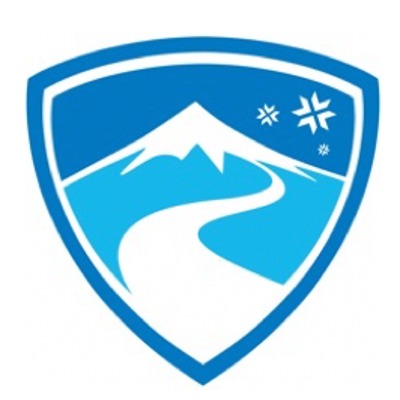Bank Cler / BAK Economics Report Shows Ski Holidays In Switzerland Have Become Significantly More Expensive

The Swiss love skiing holidays and prefer to spend them in their own country. They are also willing to dig a little deeper into their pockets. But how deep can it go? The current study results by Bank Cler and BAK Economics on the prices for ski holidays in Switzerland give rise to this question. In the 2024 season, a week of winter vacation costs on average almost a quarter more than in 2022. The main factors that are particularly important are the increased costs for accommodation and the large price differences between the destinations. When it comes to accommodation, the increased prices are particularly significant due to the limited supply at the time of the survey. Families are particularly affected by the price increase. Nevertheless, the tourism industry is expecting an increase in overnight stays in Switzerland this winter - from domestic tourists and guests from long-distance markets.
The essentials in brief:
- The prices for a week of ski holidays in February 2024 are on average 24% higher in almost all ski areas than in the last survey (in November 2021 for February 2022).
- With a price increase of 33%, families are hit the hardest. Married couples pay “only” 15% more.
- Accommodation prices have risen the most – up to 41%. The high prices are largely due to the scarcity of supply at the time of the analysis. In order to save costs, it is advisable to book your ski holidays well in advance.
- The price differences for accommodation are enormous between the ski areas; A holiday apartment in a more expensive ski resort can cost up to four times more.
Verbier, Saas-Fee and Zermatt will be the most expensive ski areas in 2024. A week there costs around 67% more compared to the cheapest regions – Airolo, Adelboden-Lenk and Aletsch-Arena. - Ski pass prices have increased by 9%. In 2024, all customer segments will pay more than in 2022, a full 27% in Zermatt and 25% in Flims-Laax-Falera.
- Ski holidays in Switzerland have it all: holiday apartments or hotel rooms, ski passes for the whole family, ski and snowboard rental, meals on the slopes, ski school and so on. Enjoying the mountains comes with a lot of costs. Bank Cler, which has been carrying out an analysis of ski holiday prices in Switzerland together with BAK Economics since 2019, sought answers to the following questions in November 2023: How much does a week of ski holiday cost in the 2024 season (February 10 to 17, 2024). Switzerland? How have prices changed compared to the first winter after the corona pandemic in 2022?
The collection of data from 14 ski areas for a ski week (8-day ski pass, 7-night accommodation) shows the cost development for families with two children, married couples and students for the upcoming season. Further details on the analysis can be found at the bottom of this media release.
Prices rose by 24% overall in 2024
If you compare the price changes in the individual ski regions across all customer segments and cost categories, you can see that prices rose by an average of 24% from 2022 to 2024.
- An increase in prices can be seen across all categories: accommodation, ski pass, ski rental, ski school.
- The biggest price driver in the current winter season is accommodation (+41%).
- Ski rental has become just under 1% more expensive.
- Ski holidays have become more expensive for families. On average, they have to pay 33% more than in 2022. For students, the price increase for offers is 22%, and for married couples it is the lowest at 15%.
- The cheapest are Airolo, Adelboden-Lenk and Aletsch-Arena
Across all customer segments (family of four, married couple, students), the Aletsch Arena, Adelboden-Lenk and Airolo are the cheapest ski areas in 2024. A family pays the least in Airolo at CHF 3,543, followed by Adelboden-Lenk (CHF 4,404) and Engelberg-Titlis (CHF 4,926). A married couple spends the cheapest holidays in Airolo (2,547 CHF), the Aletsch Arena (3,398 CHF) or in Adelboden-Lenk (4,046 CHF). Airolo is also the cheapest for students at CHF 888, followed by Engelberg-Titlis at CHF 1,288 and Adelboden-Lenk at CHF 1,325.
Three Valais destinations are the most expensive ski areas
Verbier, Saas-Fee and Zermatt are at the higher end of the Swiss ski resorts. With costs of CHF 8,470 for a family ski holiday, Saas-Fee “wins” the high-price ranking. In Verbier and Zermatt a family pays around 7,000 CHF (Verbier 6,967 CHF, Zermatt 6,764 CHF). For married couples, Verbier is the leader in terms of price (CHF 6,429), followed by Zermatt (CHF 5,684) and Gstaad (CHF 5,225). For students, ski holidays in Zermatt (CHF 1,898) are the most expensive, followed by Saas-Fee in second place (CHF 1,798) and the Jungfrau region in third place (CHF 1,718).
Accommodation prices increased by 41%
Offers for accommodation have increased by an average of 41% across all regions compared to the first winter after the corona pandemic in 2022. However, caution is advised when making the comparison; Only hotels and holiday apartments that are available at the time of booking (beginning of November) can be included in the comparison. The extreme price increases can sometimes be explained by the fact that cheaper accommodations are already fully booked. For example, if you only look at hotels that were already included in the analysis last year, you can see a significantly lower price increase of 18%.
- The price differences for accommodation between destinations are significant and have increased since 2022. Depending on where you go on your skiing holiday in 2024, the price could be more than four times as much.
- A family of four can save a lot of money depending on the ski region: While the offers in Airolo are around 1,400 CHF, the price in Saas-Fee or Verbier is 5,813 CHF and 4,183 CHF respectively.
- The price difference for accommodation is also greatest among married couples. Here the difference between the cheapest offers in Airolo (1,519 CHF) and the most expensive in Verbier (4,895 CHF) is over 3,300 CHF.
- Students pay 399 CHF in Airolo for the week in question, while in Zermatt they pay 1,081 CHF.
When comparing with winter 2022, high fluctuations can be seen in the customer segments. Offers for accommodation in certain ski areas have only increased in the single digits for one of the selected customer segments, while they have become at least half as expensive for another segment. These fluctuations are particularly impressive in the Aletsch Arena, for example: for a married couple the price increase is 7%, while the prices for accommodation for a family of four there are twice as high as two years ago. Overall, overnight stay prices for families increased the most, with an increase of 70%. A married couple, on the other hand, pays 20% more than in 2022.
Ski passes have become more expensive in most ski areas
- Swiss ski areas are increasingly relying on dynamic prices for ski passes. The period chosen for the analysis (February 10th to 17th, 2024) is extremely popular. Ski pass prices have increased by 9% compared to 2022.Married couples are most affected: prices for this segment have increased by 10%
- The biggest price increases were in Zermatt and Flims-Laax-Falera: all segments will pay 27% and 25% more in 2024 than in 2022.
- Only in Verbier have the ski passes become cheaper (-6%).
- When it comes to students, the biggest changes can be seen in Zermatt and Verbier. In 2022 you paid 454 CHF for an 8-day ski pass in Zermatt, in 2024 it will be 576 CHF (+27%). On the other hand, in Verbier they paid 481 CHF in 2022, 383 CHF in 2024, i.e. 20% less.
- Ski schools are slightly more expensive on average
Ski school prices have increased by an average of 3.4% compared to the first winter after the corona pandemic. In St. Moritz, on the other hand, where a family paid CHF 828 for two children in 2022, only CHF 700 will be charged in 2024. This corresponds to a reduction of 15%. In Andermatt-Sedrun the price rose by 25% from 396 CHF to 495 CHF. The cheapest ski schools this winter can be found in Airolo and Saas-Fee, where you pay 400 CHF and 420 CHF per week of skiing, respectively. Learning to ski is still most expensive in Zermatt, where prices for ski school at CHF 1,110 have increased by another 8% compared to 2022 (CHF 1,030).
Outlook: Switzerland's tourism industry benefits from high demand and solvent markets
The current price increases in the Swiss tourism industry not only reflect the higher costs, but are also an indicator of the strong demand in the tourism sector. Switzerland is heading for a new record with an expected number of over 40 million overnight stays in the tourism year 2023. For the coming winter, BAK Economics expects an increase of 66,000 to a total of 17.5 million overnight stays. This means that overnight stays are 4.4% higher than before the corona pandemic and 18.5% higher than in winter 2022.
Domestic holidays remain popular
For Mr. and Mrs. Schweizer, the past few years have apparently led to a lasting reassessment of vacations in their own country. The number of overnight stays among Swiss guests in the coming winter season will be 9.1 million overnight stays, significantly higher than in winter 2022. BAK Economics expects a further increase of 2.2% among European guests in the coming winter. However, the development of demand in Europe is heterogeneous: While the number of guests from France is expected to fall, an increase from Germany is expected after a weak previous winter. What is particularly noticeable at the moment is the strong increase in British guests, which is expected to continue with growth of 2% in winter 2024. The long-distance markets will continue to show high growth rates, and the Asian region in particular still offers considerable catch-up potential. It is also noteworthy that the number of guests from the USA is around 17% higher than before the Covid-19 pandemic.
More guests from long-distance markets – fewer from Europe
Destinations with a high proportion of Swiss, American or European guests have come out of the Covid pandemic better than those whose guest structure is more influenced by Far Eastern markets. Destinations such as Davos-Klosters, Adelboden-Lenk and Aletsch Arena can score points with Swiss guests thanks to their attractive pricing and have benefited from their strong focus on the domestic market over the past two years. However, the growth potential is currently only low. On the other hand, the destinations of Zermatt and Verbier should be able to benefit from the catch-up potential that still exists in the long-distance markets. These destinations attract more wealthy guests from long-distance markets and can also charge correspondingly higher prices.
In the long term, it becomes apparent that the share of domestic demand will remain permanently elevated. A shift in the source markets for foreign guests is foreseeable: the proportion of European guests will tend to decrease, while the long-distance markets, led by the strong growth in the USA and the gradual return of Asian guests, will become more important. Overall, demand will shift towards more solvent markets.
Analysis details
How much does a week's ski holiday cost in the period from February 10th to 17th, 2024 in various Swiss ski areas? To determine this, the offers that were available at the beginning of November 2023 were looked at. These were compared with the offers in the first winter after the corona pandemic (ski holidays from February 19th to 26th, 2022, November 2021 survey).
14 different ski regions were analyzed: St. Moritz, Davos-Klosters, Flims-Laax-Falera and Arosa-Lenzerheide in southeastern Switzerland; Andermatt-Sedrun and Engelberg-Titlis in central Switzerland; Gstaad, the Jungfrau region and Adelboden-Lenk in the Bernese Oberland; Zermatt, the Aletsch Arena, Verbier and Saas-Fee in Valais and Airolo in Ticino.
The costs for a week of skiing were compared between the different holiday resorts. The following costs were taken into account: 8-day ski pass, 7-night accommodation in a holiday apartment or with a couple in a hotel, ski rental (ski boots and skis) and tourist tax. For the families, a half-day ski school for the children for 5 days was also included. What was not considered are variable costs for food, entertainment and travel expenses.
The comparison was carried out for a family with two children (7 and 10 years old) renting a holiday apartment through Airbnb; for a couple who book a 4-star hotel and for a student shared apartment of three who also rent a holiday apartment via Airbnb.
Downloads
Comparison National (PDF) >>>>
Comparison of regions (PDF) >>>>













